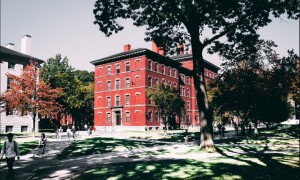President Xi Jinping's trip to Hong Kong, which concluded on Saturday, boosted the confidence of its people for a better future, despite various challenges remaining ahead, analysts and residents said.
During his 49-hour visit to the special administrative region, Xi participated in 20 activities and held intensive talks with people from all walks of life, ranging from schoolchildren and teenagers to top government officials.
He also inspected the People's Liberation Army's Shek Kong barracks in Hong Kong on Friday. The garrison should resolutely champion State sovereignty and ensure the region's prosperity and stability, he said.
In his speech on Saturday marking the 20th anniversary of Hong Kong's return to China, Xi called on the fifth-term government of the Hong Kong SAR to unite people of all sectors to fully and faithfully implement the principle of "one country, two systems".
Noting that China's rapid development provides an invaluable opportunity, Xi called on the people to "cherish the opportunity, seize it and focus your energy on Hong Kong's development".
He said that there are many challenges for Hong Kong. For example, it has yet to build public consensus on some major political and legal matters; the Hong Kong economy faces a number of hurdles; and housing and other issues that affect the daily lives of the people have become more serious.
To address the challenges, Xi said, "We must stay on the right and steady course, gain a full understanding of the policy of 'one country, two systems' and faithfully implement it."
In his speech, Xi warned against moves to undermine national sovereignty or challenge the central government's power.
"Any attempt to endanger China's sovereignty and security, challenge the power of the central government and the authority of the Basic Law of the Hong Kong Special Administrative Region or use Hong Kong to carry out infiltration and sabotage activities against the mainland is an act that crosses the red line, and is absolutely impermissible," he said.
Many Hong Kong people expressed appreciation for the president's visit, saying they hope the public will heed the messages the president brought and reunite to achieve an even brighter future.
Lau Siu-kai, vice-president of the Chinese Association of Hong Kong and Macao Studies, said he was delighted to see Xi reaffirming the central government's firm stance in implementing the "one country, two systems" principle in Hong Kong.
The president's commitment to it helps boost people's confidence in Hong Kong's long-term prosperity and stability, and helps it focus on devising strategies to push forward its own development along with the country's.
Confidence was a recurring theme in Xi's speeches in the city. At an official banquet hosted by the Hong Kong government on the second day of his visit, Xi called on Hong Kong people to have confidence in themselves, in the HKSAR and in the country.
Chan Yung, chairman of the New Territories Association of Societies, said the past 20 years were a perfect demonstration of the central government's continuous support of the region.
"When Hong Kong faced crises, the central government was always there to help," Chen said, adding that with the strong support, Hong Kong is well-positioned to be confident in pursuing future development.
Stanley Ng Chau-pei, chairman of the Hong Kong Federation of Trade Unions, said that Hong Kong should proactively take part in the nation's development, including development of the Guangdong-Hong Kong-Macao Greater Bay Area, and pushing forward the Belt and Road Initiative.
"President Xi told the people of Hong Kong that with confidence and trust the city will surely prosper," Ng said.
Chairman of the Chinese General Chamber of Commerce Jonathan Choi Koon-shum said Xi's speeches inspired Hong Kong to unite and set aside differences, so that it can move away from internal rifts and work to maintain its competitiveness and build a better future using its many strengths and rich talent pool.
The president's trip was also well received by local youth. Willy Ho Tsz-ho, 28, who works at a local news media company, said he was glad the president weighed in on the importance of "seeking broad common ground while setting aside major differences" in Hong Kong. The remarks showed that the president understands and respects the city's diversity, Ho said.
He said he hoped that members of the city's opposition would return the respect and communicate sincerely with the HKSAR government and central government authorities.







